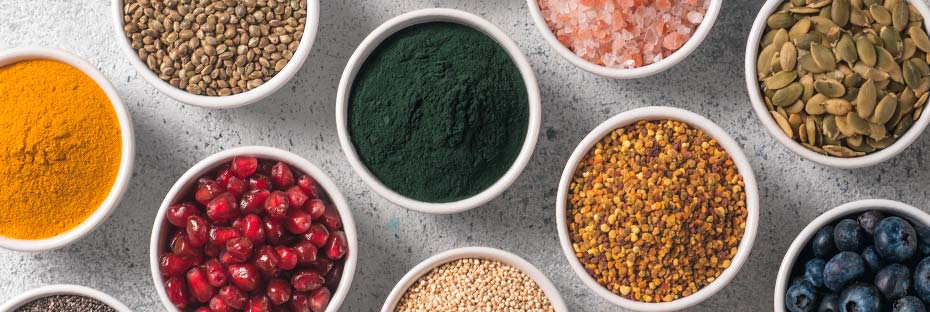Top 9 Superfoods for 2021
Eat yourself into shape year with the best and tastiest of the latest superfood stars. .
Looking to eat yourself healthy in 2021? Exercise and a balanced diet should always be top of your to-do list, but make a habit of including these ingredients in your diet and you’ll stay ahead of the game in the healthy eating stakes. Here are the latest (and yummiest) superfoods to help you on your way to a future-friendly lifestyle, as recommended by top pharmacist and medical nutritionist Aidan Goggins, author of The Health Delusion.
1. Arabica coffee

Arabica Coffee
In the early stages of the 2020 pandemic the ‘Quarantine Coffee Challenge’ amassed hundreds of millions of views across social media as people looked to reproduce food service experiences at home. With its rich lipid content carrying flavours and aroma, the Arabica bean is usually the barista’s bean of choice. Less well known is that the lipid Kahweol, found almost exclusively in Arabica beans, has emerged as the standout nutrient associated with coffee drinkers’ lower risk of diseases, like type 2 diabetes mellitus, chronic liver disease, and neurological disorders. A cup of Arabica coffee is the ultimate super tasty functional health food..
2. Purple Potatoes
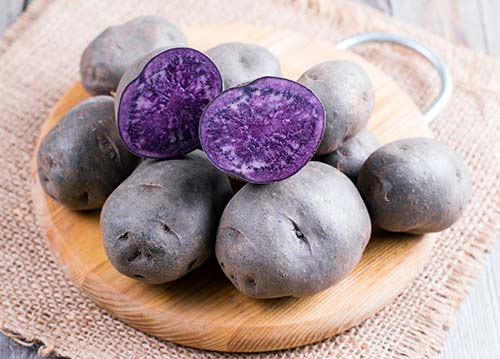
Give your mash an eye-popping purple twist. Beautiful in any dish, the striking violet shade of this prince of potatoes may not bring a dramatic flavour difference, but its powerful pigment is packed with anthocyanins, the same heart-friendly compound found in many kinds of red berries, grapes and red cabbage. Anthocyanins can help to lower the risk of heart disease and strokes. A 2021 review found anthocyanins can help lower the risk the diseases of ageing including cardiovascular disease, cancer, neurodegenerative disorders and bone loss.
3. Turmeric

Loved for its warm, earthy flavour and the golden tint it brings to curries, dhaals and other South Asian dishes, turmeric has found many uses over the millennia in everything from food to cosmetics; traditionally smeared on the faces of women to improve complexion. Today, science supports its skin healthy credentials with a 2020 systemic review finding oral consumption reduces skin inflammation and slows skin ageing It has at least 53 Sanskrit names describing its numerous properties, from patwaluka (perfumed powder) to kanchani (exhibits golden colour). You can reap turmeric’s golden glow by adding it not just to curries but smoothies and scrambled eggs for its primary active ingredient, curcumin.
4. Kefir
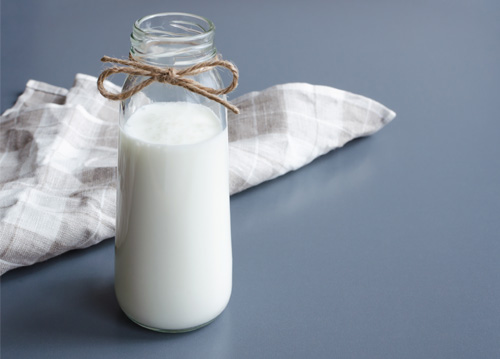
The new must-have recovery drink for athletes, kefir is a rich protein source while promoting intestinal health and immunity, which can become strained after strenuous exercise. A 2021 study testing kerfir's benefits found that consumption for 28 days significantly improved exercise performance and accelerated recovery. A fermented milk drink similar to a thin yoghurt, kefir has an enjoyable tart-sour tang and a bit of a natural fizz. It’s traditionally made from cow’s milk but these days you’ll find kefir to suit all audiences, with dairy-free alternative milks like coconut, rice and soy available too.
5. Popcorn
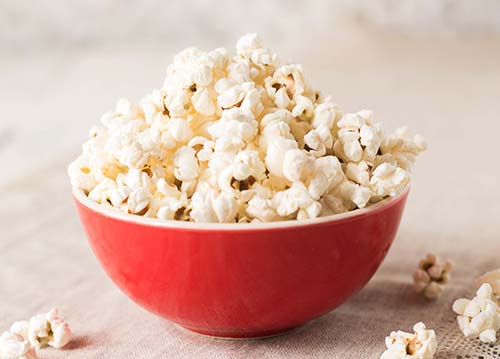
Going to the movies could be worth it just to enjoy this blockbuster. Popcorn offers the diets' best source of wholegrains, a food group less than 8% of us gets enough of. Among the different whole grains (oats wheat rice) corn’s rich content of polyphenols gives it the highest antioxidant activity. And when popped our ability to absorb this beneficial nutrient increases dramatically. Furthermore, popcorn is also the most satiating food among the snacks and desserts category making this superfood the ultimate choice for curbing hunger too.
6. Oyster Mushrooms

Silvery-grey or greyish brown, this unassuming common edible mushroom is actually categorised as a medicinal mushroom because of its valuable health properties. Subtle in flavour, it’s fat-free and low in calories but high in protein, fibre and minerals, including iron, zinc and potassium and B and D vitamins. It also offers an effective alternative treatment for atherosclerosis,or clogged arteries. Make sure to pop some in your next soup or stir fry.
7. Broccoli Sprouts
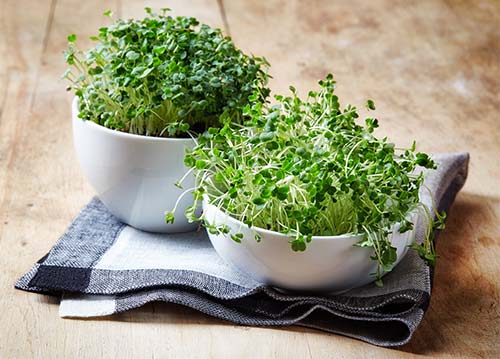
Little broccoli, big benefits. Easy to eat in everything from salsas to smoothies, broccoli sprouts contain up to 50 times more of the powerful nutrient sulforaphane than mature broccoli heads, with lots of crunchy texture and a radish-like peppery taste. A recent study 2 found daily broccoli sprouts lowered blood sugar in diabetics by 10% more than medicine alone.
8. Jerusalem Artichoke
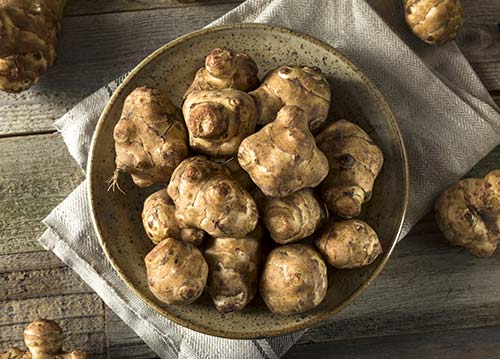
A super-rich source of the prebiotic inulin, which increases good bacteria in the gut. A fascinating 2019 study 3 found that individuals who eat inulin-rich vegetables even experience diet behaviour changes, reporting greater satisfaction and a drive to eat a healthier diet. Not only that, it’s hugely versatile ingredient: fabulous when blended in soups or mashed, roasted, sautéed, steamed, boiled or fried. They’re just as tasty eaten raw too, sliced up sweet and crunchy for salads.
9. Nori Seaweed
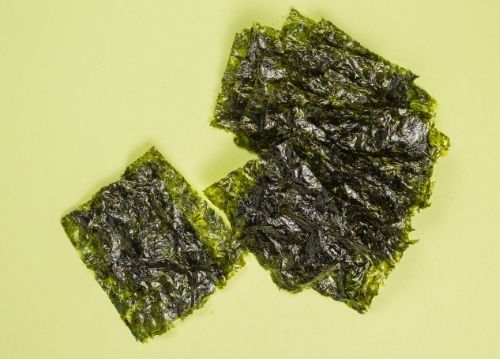
An explosion of a new cuisine - called ‘phycogastronomy’ - where seaweed is the new trendy food has occurred. Driven from a desire to find sustainable healthy food sources as well as top chefs infusing dishes with their umami flavours to exploit new levels of deliciousness. Of these the paper-thin sheets of red algae called Nori are a firm standout offering a nutritional treasure trove. Just one sheet (4/5grams) provides 50% of your iodine needs and is loaded with healthful carotenoid antioxidants including as much beta carotene as 10 oranges – nutrients commonly missing in the UK diet. And just in case you think you can just get these nutrients through synthetic supplements a recent review exposed that natural carotenoids from seaweeds have far greater antioxidant activity than synthetic forms.
References
1. Arabica Coffee - Moeenfard, Marzieh, and Arminda Alves. "New trends in coffee diterpenes research from technological to health aspects." Food Research International 134 (2020): 109207.
2. Ref: Coco, Michael G., and Joe A. Vinson. "Analysis of popcorn (Zea mays L. var. everta) for antioxidant capacity and total phenolic content." Antioxidants 8.1 (2019): 22.
3. Hiel S. Bindels L. Pachikian BD. Kalala G. Broers V. Zamariola G. Chang B. Kambashi B. Rodriguez J. Cani PD. Neyrinck AM. Thissen JP. Luminet O. Bindelle J. Delzenne N. Effects of a diet based on inulin-rich vegetables on gut health and nutritional behavior in healthy humans. Am J Clin Nutr. 2019 Jun 1;109(6):1683-1695. doi: 10.1093/ajcn/nqz001
4. Nori seaweed - Capelli, Bob, Shawn Talbott, and Lixin Ding. "Astaxanthin sources: suitability for human health and nutrition." Functional Foods in Health and Disease 9.6 (2019): 430-445.

